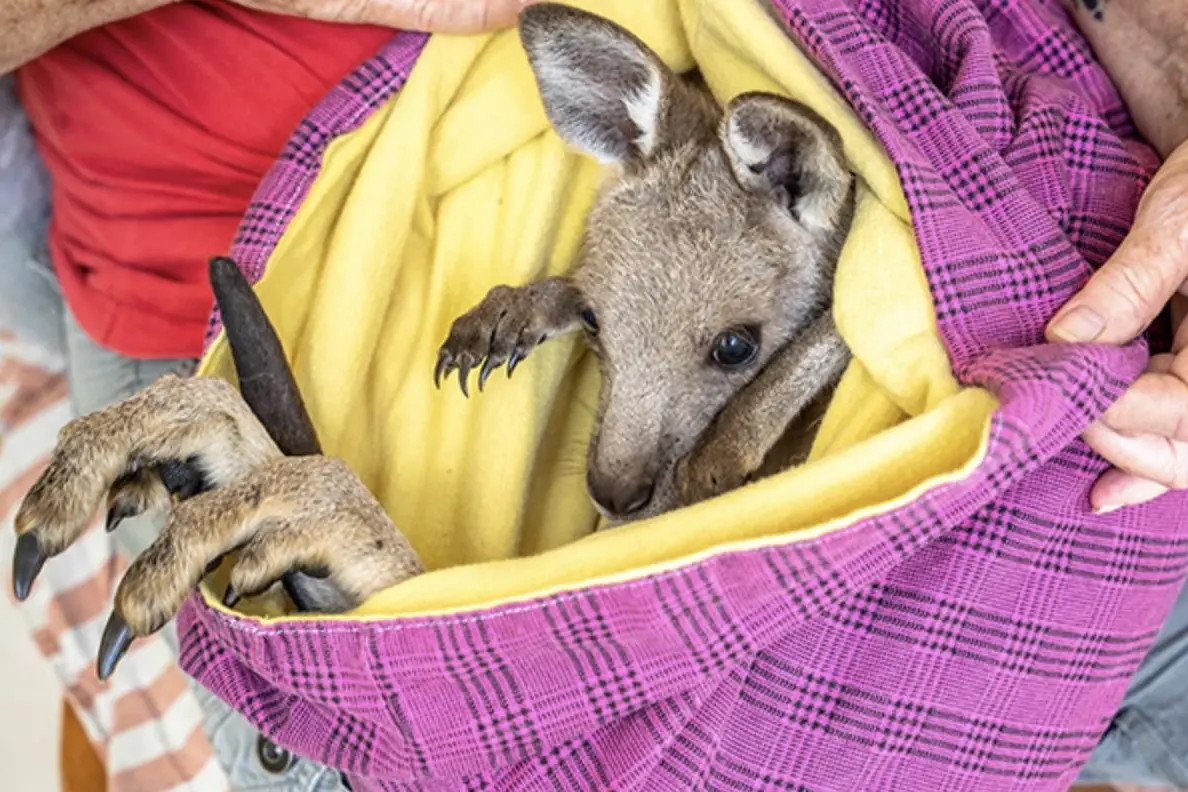PHOTO
As reported in this masthead last week, local native animal rescue organisation, Snowy Mountains Wildlife Rescue (known locally as LAOKO), has experienced one of the busiest winter seasons yet.
Each year LAOKO (Looking After Our Kosciuszko Orphans) receives more than 1000 calls from members of the public who have found an animal which is injured, sick or orphaned due to a variety of circumstances such as motor vehicle collision, abandonment by parent animal, attacked by domestic/introduced animals, unsuitable environments, disease and natural disasters.
“Most animals that have come into care this ski season, or have had to be sadly euthanised due to life impacting injuries, are from motor vehicle collisions,” vice president, Allyson Jennings, said.
“Everybody’s exhausted. We keep going for the wildlife because this is why we joined LAOKO, we care about the wildlife and care about the community.
“When you think about it, we are helping the wildlife because they can’t help themselves.”
LAOKO is a 100 per cent volunteer-run organisation covering an area of approximately 15,000 square kilometres (1.5 million hectares).
The organisation recently held its AGM electing an executive committee for 2025-2026 of president: Maryanne Renfrey, vice president - operations: Kelly McMahon, vice president - admin: Allyson Jennings, secretary: Suzanne Turner and treasurer: Nadia Bordin.
The organisation is always looking for new members to join, especially following such a hectic winter season.
There are many rewarding ways to support its wildlife rescue, rehabilitation and release activities as a member.
Active members volunteer time towards the rescue and rehabilitation of injured and orphaned wildlife – e.g wildlife carers, wildlife rescuers, snake handlers and those that aid in the euthanasia of severely injured wildlife.
The licence that LAOKO holds requires that all persons who work directly with animals must be a member of LAOKO.
Financial members are those who don’t have the time to commit to animal rescue and rehabilitation however have an interest and compassion for supporting local native wildlife via primarily financial means.
The membership fees help LAOKO immensely by providing funds for the costs associated with wildlife rehabilitation activities.
In addition to financial support, there are other ways to support LAOKO that doesn’t have the same level of time and commitment that animal rescue and rehabilitation has, such as pouch sewing, animal transport, emergency phone volunteer, fundraising, admin etc.
Becoming a volunteer is very fulfilling. To become a volunteer who works directly with wildlife you must be over 18 (or supervised by a person over 18), have a caring nature and be prepared to attend training days. You must also be able to understand the differences between caring for native animals that are destined to be released back to the wild, and the care of domestic animals.
Volunteers don’t need to have prior experience however LAOKO welcomes anyone who has previously been involved with wildlife rescue and rehabilitation.
For anyone who has no prior experience and wishes to work with native animals, they need to undertake rescue and rehabilitation training. There are separate trainings for each species of animal.
LAOKO tries to pair new carers with more experienced carers, who will provide support. You will not be required to take on animals or duties that you are uncomfortable with. All carers are required to renew their training in accordance with the LAOKO wildlife licencing requirements.
“We always need more volunteers. It doesn’t matter how much time you can give, whether you can only afford three hours a week or 30 hours a week, it all counts,” Ms Jennings said.
“We have a wide variety of volunteers doing different roles, and some people choose to only do a specific role. For example our euthanasia volunteers, that may for some of them be all they do. But as you can appreciate there’s not a euthanasia every day, or every week in some cases, depending on the time of year, so it can be a bit quiet on that front.
“We do encourage people to join up and help in any way they can.
“We’re really lucky to live where we do. There are not many animals we don’t care for; we’ve seen some incredible animals come through the door. Sadly some of them don’t make it, but I feel lucky to be able to do this,” Ms Jennings said.
Membership forms can be filled out online by going to the LAOKO Snowy Mountains Wildlife Rescue website and keep an eye on the group’s socials for any information on wildlife rescue courses.





